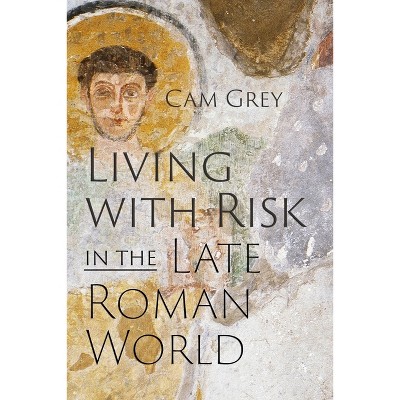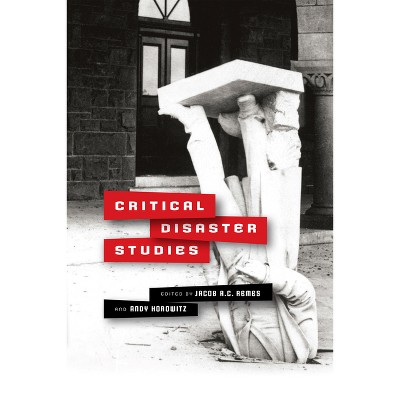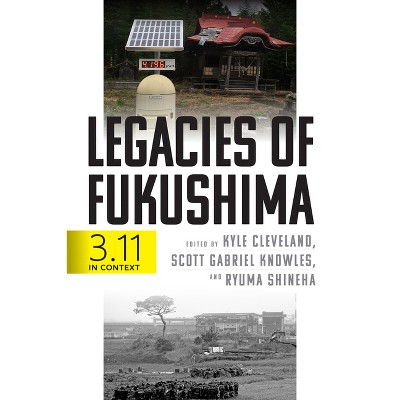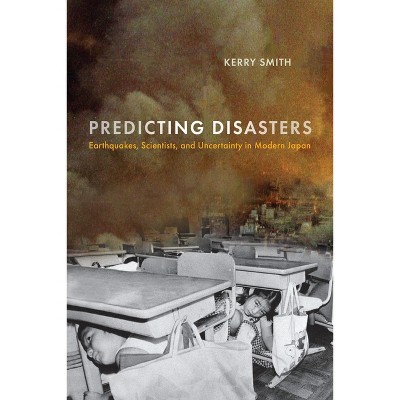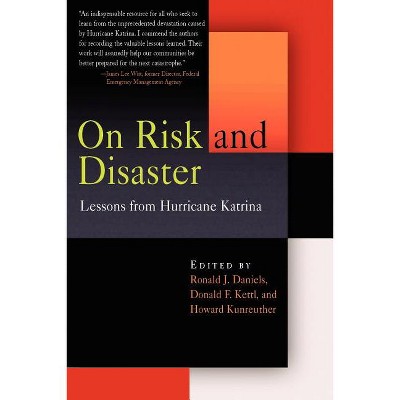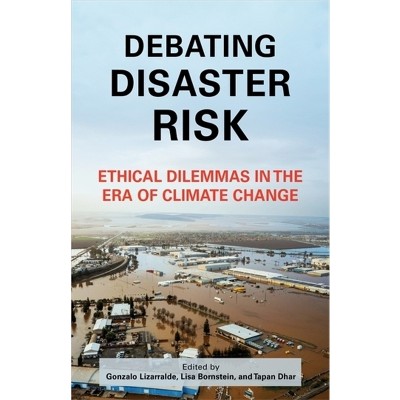Disastrous Times - (Critical Studies in Risk and Disaster) by Eli Elinoff & Tyson Vaughan (Hardcover)

About this item
Highlights
- Across contemporary Asia, each day dawns with a new story about living in an era of profound environmental change.
- About the Author: Eli Elinoff is a Senior Lecturer in Cultural Anthropology at Victoria University of Wellington, New Zealand.
- 288 Pages
- Science, Global Warming & Climate Change
- Series Name: Critical Studies in Risk and Disaster
Description
About the Book
This book explores how people across Asia live, struggle, and make sense of the sorts of environmental ruptures, fast and slow, that now shape the region. The chapters ask how we might analyze this moment of rupture and risk. How do we think about disasters that seem to occur instantaneously but actually draw from deep historical roots and structure future trajectories? How are the burdens of such ruptures distributed? What kinds of sites, stories, analytical approaches, and theoretical tools might be used to help us understand these environmental changes and conflicts? What kinds of struggles-personal, ethical, political, and environmental-flow into and out of these changes? In what specific ways are human communities set adrift by the lashing waves of near-constant environmental upheaval? How do people navigate these dangerous waters? And how might they "re-moor" once the waters calm?--Book Synopsis
Across contemporary Asia, each day dawns with a new story about living in an era of profound environmental change. Rapid transformations in the landscape, society, and technology produce new conflicts that are experienced at nearly every scale of life in the region. Environmental change is marked in square kilometers or micrometers, in cities or in households, within national boundaries and beyond. These changes appear in the form of radical ruptures wrought both by spectacular catastrophes like massive floods or tsunamis and by slow tragedies like the widening epidemic of asthma or the grinding processes of land dispossession. Each of these scales and phenomena reveals what it is to live in disastrous times.
This book explores how people across Asia live through and make sense of the environmental ruptures that now shape the region and asks how we might analyze this moment of disruption and risk. Global environmental shifts such as climate change are usually linked to large-scale practices such as industrialization, urbanization, and global capitalism. Here, in contrast, contributors illustrate how understanding the practical, political, and ethical consequences of living in a moment of planetary change--or intervening in its course--requires engaging with the human-scale actions and specific policies that both shape and respond to such transformations at an everyday level. Coastal residents of routinely flooded Semarang, eco-conscious retirees in a Chinese suburb, and cyclists navigating air pollution in Kolkata each experience environmental risk and change in highly situated and specific ways; yet attending to their lived, quotidian experiences enables us to apprehend the complex processes that are profoundly changing the planet.
Contributors: Nikolaj Blichfeldt, Vivian Choi, Eli Elinoff, Jenny Elaine Goldstein, Andrew Alan Johnson, Samuel Kay, Lukas Ley, Edmund Joo Vin Oh, Malini Sur, Tyson Vaughan.
Review Quotes
"A welcome contribution to the critical social science of the anthropocene. Disastrous Times not only develops a 'quotidian' understanding of a sometimes abstract and theoretical concept but also demonstrates the importance of Asian research sites for reassessing what has been a primarily Euro-American debate."-- "Jerome Whitington, author of Anthropogenic Rivers: The Production of Uncertainty in Lao Hydropower"
About the Author
Eli Elinoff is a Senior Lecturer in Cultural Anthropology at Victoria University of Wellington, New Zealand. Tyson Vaughan is a sociologist with the Institute for Water Resources, U.S. Army Corps of Engineers.





